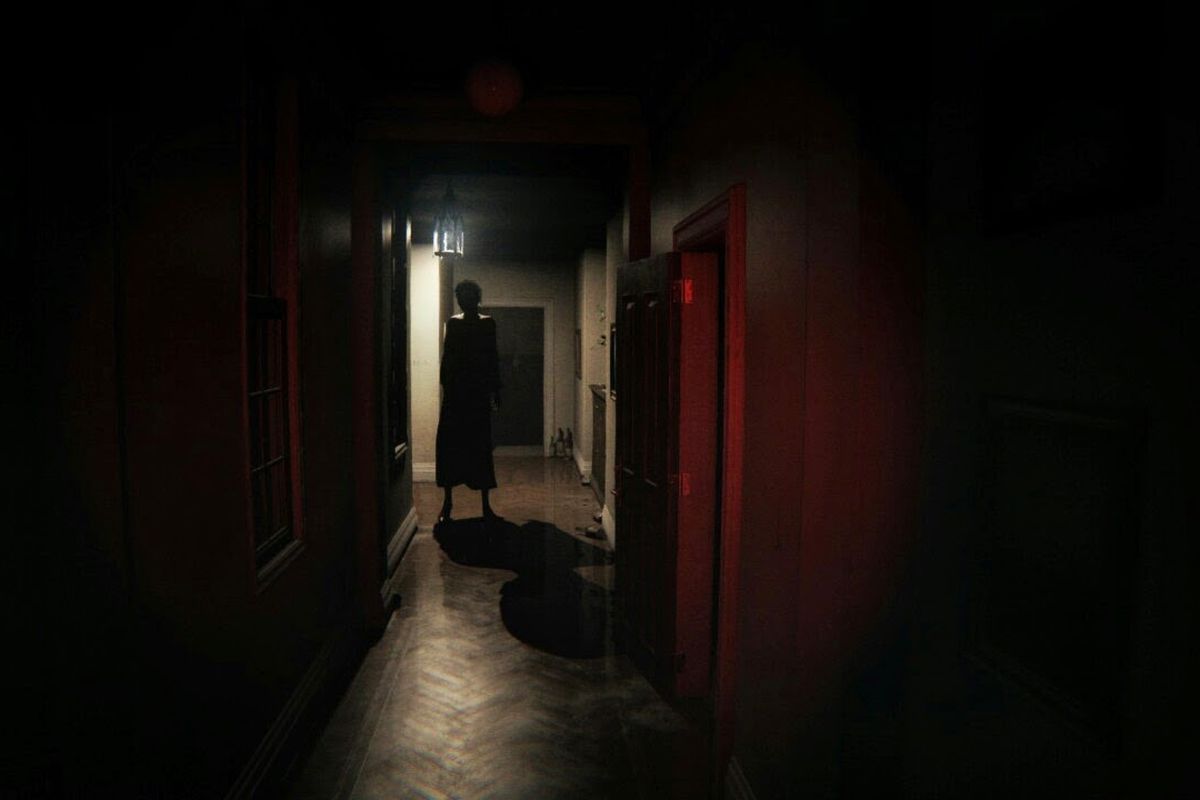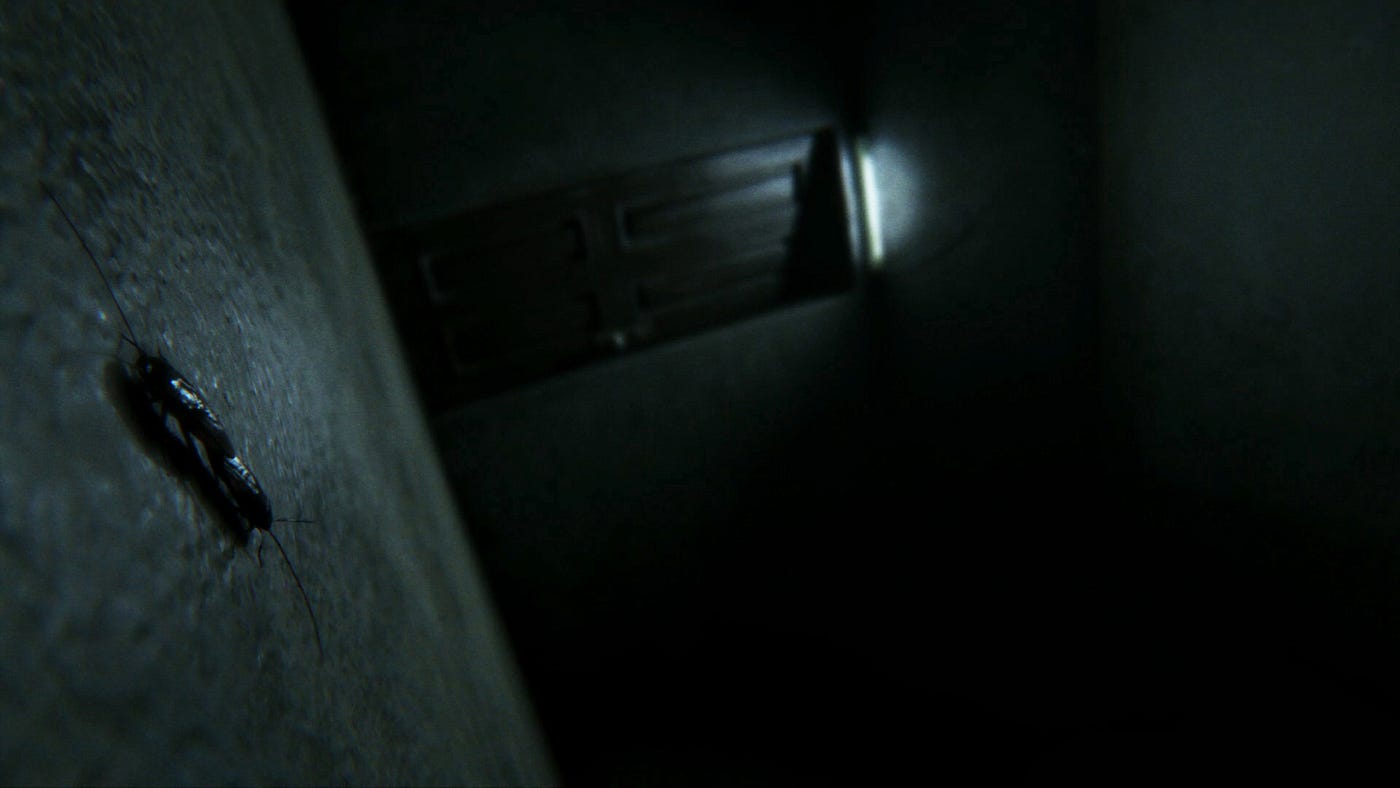Peak Horror
The most frightening video game ever is as elusive as it is horrific

Halloween is here, and although it’s something of a cliché, I really love playing (and discussing) my favourite horror games at this time of the year. I could run down the list of classics, especially titles like Resident Evil and Silent Hill, which have been mainstays of the genre for years. But there’s one game — one experience — that now sits front-of-mind whenever I think about horror in general.
It’s an experience I’ve never written about before. It’s been sitting on my PlayStation 4 hard drive since late 2014. When I hunt through my PS4 library, I always notice its strangely mysterious icon; it’s almost like catching a shadow in the corner of your eye that, despite a benign first appearance, somehow carries an air of subtle malevolence.
That icon is a window into a lonely place.

I’ve visited that lonely place and, ironically, it’s one of the most enjoyable and fascinating places I’ve ever explored. And yet, its mere presence on my PS4 feels like a curse; a digital, amygdala-searing branding iron that strikes every time I see it.
I say all of this as a person who generally doesn’t go all sweaty-palmed when watching the average horror movie or playing the average horror game. Sure, I’m as prone to jump scares as anyone, but very few horror experiences really get under my skin.
Not so with P.T., the sublime horror masterpiece created by Hideo Kojima and Guillermo Del Toro.
How is it that I possess a game that is truly wonderful — that I’m glad (and fortunate) to own — yet its mere presence on my PS4 sends a chill down my spine?
Let’s pay a visit to that lonely place. I’ll feel a bit less nervous if you join me.
Don’t read this.
When I think about some of the scariest things, a common thread is that there’s the thing itself and then there’s the mythology surrounding it. For example, in The Ring (or Ringu if you prefer), the cursed video tape is itself pretty frightening — but it only reaches maximum fear factor because of the surrounding mystery and its relationship with urban legends. Part of the tape’s viral effectiveness (that is, “viral” in pre-internet meme parlance) is that it doesn’t just touch the people who directly watch it; the people who simply talk about it are also affected, however indirectly, and they in turn participate in spreading the virus further and further in a perpetual spiral.
P.T. debuted in a similarly mysterious way. It was originally demonstrated at Gamescom in 2014 as a completely anonymous horror experience by an unknown developer called 7780s Studio. The whole thing was bizarre. Even the trailer itself (embedded below) was a weird, enigmatic mind-fuck that broke the fourth wall; it knows it’s a video game, and it knows you’re the player.
“I walked. And then, I saw me walking in front of myself. But it wasn’t really me.”
In reality, the trailer itself is the soft, candy-coated urban legend that kids nervously joke about in high school corridors.
P.T. isn’t simply a game to be enjoyed like any other game; it is something to be lived through. And, like a virus, it is spread between hosts — this is a fundamental, inescapable part of its nature.
Whether you are aware of it or not, you’re already infected. I’m sorry.
Don’t turn around.
What P.T. means to you is going to depend on whether or not you played it, as well as how long you played it for. Those who survived the entire experience still reflect on what it meant. Each relationship with P.T. is deeply personal; the scars it traces on the mind never seem to be exactly the same between any two people.
“Watch out. The gap in the door…
it’s a separate reality.
The only me is me.
Are you sure the only you is you?”
One observation nearly everyone seems to agree on is that everything has a meaning and a purpose.

When you first wake up in the concrete room, the door ahead of you is gently opened and left ajar by an unseen agent. Immediately in front of you, as you’re waking (or falling into a deeper sleep), two mating cockroaches scuttle past. You have no way of knowing this initially, but those two cockroaches are the symbolic gateway to the madness you’re about to experience. Or not. Who knows?
Look behind you.
P.T. takes place in a single, average hallway in an apparently average house. Familiarity breeds resentment, but it can also be a lifeline of sorts — one that might enable you to retain some tenuous grasp of your sanity long after you’ve drifted far below the brightly-lit surface to the murky, unforgiving deep.
It might take you a mere moment to walk from that first door to the end of the hallway, down the stairs, and out the other door. Your first pass through the hallway is mildly nervous, perhaps, but not terribly eventful.
You’ll see an alarm clock. Family photos. Lots of empty alcohol bottles. Then there’s a radio; the only obvious sound that angrily pierces the silence — it’s a news report about a murder. A man killed his wife and children (on a Sunday afternoon, after lunch, of all times…) This was one of several similar murders in the area over the last few months; all perpetrated by fathers against their families.
“You can’t trust the tap water.
204863.
Look behind you. I said, look behind you.
204863.”
You will pass through this hallway again and again, over and over, until you’re desperate to get out. The only way out is forward though, right? But the faster you head for that exit, the deeper you sink into seething panic.
Perhaps the greatest cruelty here is that you aren’t simply ascending a ramp of escalating fear. Sometimes you will run for the exit door, and upon re-starting the cycle, the lights will return to normal and the hallway will quieten down; my god, it’s a relief. You’re almost thankful for it.
But you’re still in the hallway, you still can’t get out, and who knows where Lisa is this time?
Some time ago, Konami pulled P.T. from the PlayStation Store. If you haven’t already downloaded it to your PlayStation 4, you’re pretty much out of luck (or you’re extremely lucky).
